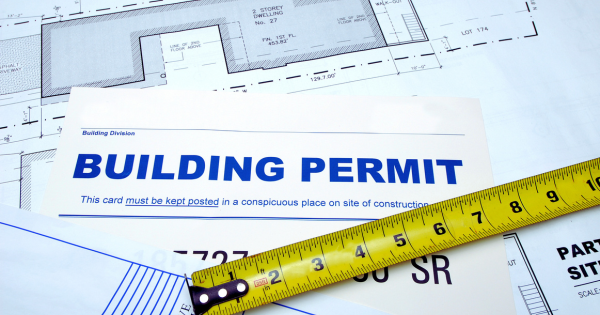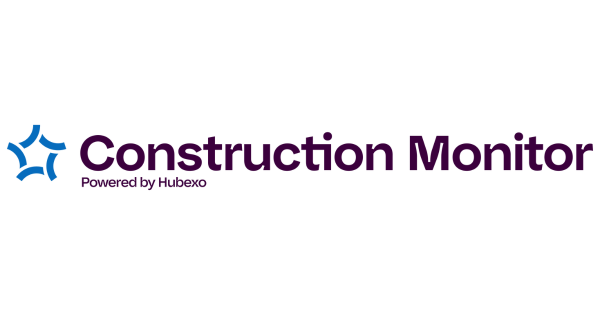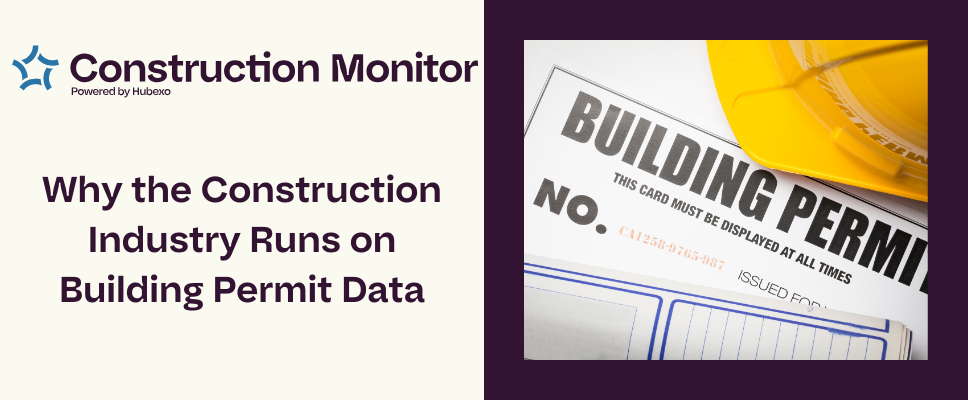Table of Contents
- The Importance of Building Permit Data in the Construction Industry
- The Construction Permit Process
- Types of Construction Professionals Who Use Permit Data to Find Work
- Non-Construction Professionals Who Rely on Permit Data
- Data Corrections and Modifications
- Why You Should Have Building Permit Data
- Using Building Permit Data for Successful Lead Generation in the Construction Business
- Summary
The Importance of Building Permit Data in the Construction Industry

Understanding Building Permits
Building permit data is the backbone of the construction industry. It acts as a roadmap for contractors, suppliers, and many other professionals, providing a glimpse into future projects, allowing them to align their resources and secure work. Building permit data is also crucial for effective construction management, helping streamline the approval process for various construction activities. Whether it’s a residential build, commercial complex, or infrastructure project, permits offer the first clue to upcoming construction opportunities.
Building permits are official documents issued by local governments that grant permission to undertake various forms of construction, including residential and commercial projects. These permits ensure that construction projects meet local building codes, zoning regulations, and safety standards. Building permit data provides valuable insights into the construction industry, including information on the number and value of new housing units authorized, the types of construction projects being undertaken, and the contractors involved. This data is crucial for construction professionals, as it helps them understand market trends, plan their projects, and ensure compliance with all necessary regulations. Let’s dig into why building permit data is so important for the construction industry and how Construction Monitor can help you find the permit data you need.
Complete the form below to get a free sample of our data.
The Construction Permit Process
The construction permit process typically involves several steps, including preparing and submitting a permit application, reviewing the application, conducting inspections, and issuing the permit. The process can vary depending on the location, type of project, and local regulations. Construction professionals, including builders, contractors, and architects, rely on building permit data to navigate the permitting process and ensure compliance with local regulations. By understanding the intricacies of the permit process, they can avoid delays, ensure their projects meet all legal requirements, and maintain a smooth workflow from start to finish.
Related: Construction Industry Home Trends.
Permit Costs and Fees
Permit costs and fees vary widely depending on the location, type of project, and local regulations. Government officials calculate permit fees based on projected construction project costs, and these fees can be a significant expense for construction projects. Understanding permit costs and fees is essential for construction professionals to budget and plan their projects effectively. By factoring in these costs early in the planning stages, they can avoid unexpected expenses and ensure their projects remain financially viable. This knowledge also helps in negotiating with clients and setting realistic project timelines.
Who Uses Building Permit Data to Find Work or Inform Their Business

Building Permits for Suppliers
Suppliers of materials such as concrete, lumber, HVAC systems, and plumbing supplies rely on building permit data to anticipate demand. For instance, knowing when a large commercial project is kicking off helps suppliers coordinate inventory and shipments, avoiding delays.
Related: What Are Construction Aggregates?
Stage of Construction: Suppliers
Suppliers often come into play during the mid to later stages of construction. Once the foundation and framing are complete, materials for interiors and mechanical systems are delivered. This phase is not as labor-intensive as it is logistics-heavy, as suppliers need to manage inventory flow efficiently.
Related: Contractors and Suppliers: Tips for Maintaining this Crucial Relationship.
Building Permits for Subcontractors
Subcontractors, such as electricians, plumbers, and carpenters, often receive their leads through building permit data. Once a project is permitted, subcontractors can pitch their services to the GC or builder. Knowing when and where projects are happening is crucial to keeping their teams employed and schedules full.
Related: Construction Business Success: Be a Shark.
Stage of Construction: Subcontractors
Subcontractors generally enter the project once the structure is in place. Electrical and plumbing work, for instance, typically happens once framing is complete. Their tasks are labor-intensive, requiring specialized skills but less equipment compared to the earlier stages of construction.
Building Permits for Builders
Builders, whether focusing on residential, commercial, or mixed-use projects, rely heavily on building permit data to stay ahead of the market. Permit data offers builders the ability to track competitors to see what and where they’re building. Builders use the weekly permit data provided by Construction Monitor to track their market share versus competitors. Plus, builders use permit data as a statistical and analytics tool to understand the current trends and future demands for building projects in large areas.
Related: Using Construction Data as Home Builder.
Stage of Construction: Builders
Building permits are often obtained in the early design stages, marking the transition from planning to execution. Builders get involved once the permits are issued, coordinating the groundwork and foundation before moving to more specialized tasks. The work is equipment- and material-heavy, especially during foundation and structural framing, with a balance between labor-intensive and equipment-driven tasks depending on project complexity.
Building Permits for GCs

General contractors (GCs) use building permit data for competitive analysis. GCs can see which of their competitors have pulled permits in their territory. General contractors can also see which exact permits their competitors are pulling. Having up-to-date permit data is paramount for GCs to understand what they’re competition is building.
Stage of Construction: GCs
GCs are involved at every stage, from pre-construction planning (post-permit approval) to completion. Their work varies depending on the project, but it is both labor- and equipment-intensive as they oversee multiple teams and ensure that each phase progresses smoothly.
Related: Improving Communication Between GCs and Subcontractors.
Non-Construction Professionals Who Rely on Permit Data
Water Purification Companies
Water purification companies use permit data to find opportunities for clients who need their products. For example, a pool chemical company uses pool permit data to see upcoming residential pool construction projects. With this data, pool chemical companies can market to homeowners who will need pool chemicals.
Insurance Companies
Insurance companies use permit data to personalize marketing efforts to homeowners and businesses that will build insurable assets.
Mortgage Companies
Mortgage companies use permit data to evaluate risk, assess property improvements, and identify homeowners who are likely to move.
Data Vendors and Analytics Firms
Data vendors and analytics firms can collect and sell permit data to interested companies.
Finance Businesses
Financial companies use permit data to understand what will be built in areas they’re looking to invest in.
Many other professionals in diverse industries use building permit data to make better decisions.
Mitigate the Risk of Data Corrections and Modifications
Building permit data is subject to corrections and modifications, which can impact the accuracy and reliability of the data. Corrections modify previous data, and annual data exist to provide a comprehensive picture of construction activity. The Building Permits Survey covers all “permit-issuing places,” which are jurisdictions that issue building or zoning permits. Summing monthly data will not generate the published cumulative or year-to-date estimate, and the annual cumulative file contains the latest monthly data for each permit office. Understanding these data corrections and modifications is essential for construction professionals to make informed decisions and drive business growth. By staying updated with the latest monthly data and recognizing the importance of annual cumulative files, they can better anticipate market trends and adjust their strategies accordingly.
While Census data is full of insights, it’s only available on a monthly or yearly basis. You need the most up-to-date data to make the most informed decisions. With Construction Monitor, you’re getting permit data on a weekly basis instead of the monthly and annual perspectives in any Census reporting.
Complete the form below to get a free sample of our up-to-date data, updated weekly.
Why You Should Have Building Permit Data

As a building professional, getting access to building permit data is crucial to staying ahead in the competitive construction industry. Here’s why you should consider using this information in your day-to-day operations:
1. Generate More and Better Project Leads
Whether for residential and commercial construction, solar panels, or swimming pools, when you have accurate, up-to-date permit data, you can approach project owners, builders, or general contractors with confidence. Demonstrating that you’re knowledgeable about their projects makes it easier to build trust and forge long-term relationships. This data gives you an edge when negotiating contracts or securing work, as it shows that you’re well-prepared and aware of their needs.
2. Stay Ahead of the Competition
Building permit data gives you a leg up by allowing you to know about projects before they break ground. By accessing this data early, you can position yourself to bid on jobs before your competitors even know they exist. Whether you’re a builder, supplier, GC, or subcontractor, this information allows you to be proactive rather than reactive, increasing your chances of securing more work.
Related: Which Businesses Can Benefit from Building Permits?
3. Identify and Research Emerging Trends and New Markets
Building permit data can also reveal industry trends, such as the growing demand for solar installations or pool construction in certain areas. By analyzing this data, you can spot emerging markets and align your business to take advantage of new opportunities. Understanding these trends allows you to offer the right services at the right time, ensuring your business stays relevant.
4. Tailor Your Marketing and Outreach
Knowing where and when projects are happening means you can target your marketing efforts more effectively. Instead of casting a wide net, you can focus on specific areas where new construction or renovations are happening. For example, if you’re a supplier of HVAC systems, having data on commercial projects that require advanced systems lets you reach out to the right contractors and offer your products at the perfect time.
5. Better Resource and Labor Management
Construction schedules are tight, and timing is everything. With building permit data, you can better plan your resources and workforce. If you know when a project is expected to start, you can ensure your team or materials are available when needed, preventing costly delays. For general contractors, this information is invaluable for creating project timelines and managing subcontractor availability.
In short, building permit data helps you stay informed, efficient, and competitive. It’s a tool that no construction professional should overlook if you want to grow your business and keep ahead of the ever-changing construction landscape.
Related: Building Permits: Your Secret Weapon.
What Do Construction Monitor Clients Use Permit Data For?

Every business, particularly construction firms, requires a steady influx of new customers to sustain revenue flow and profitability. Lead generation in the construction business flows from a number of consistent categories, but adding building permit data to these sources will significantly expand your reach into areas you may not have even considered.
If you’re looking for a reliable source of building permit data, check out Hubexo. Construction Monitor is an industry leader in providing comprehensive, up-to-date information. Our platform is designed to help builders, contractors, suppliers, and other construction professionals access the permit data they need to find new opportunities, streamline operations, and grow their business. Here’s how Construction Monitor can support your needs:
1. Access Comprehensive Building Permit Data
Construction Monitor collects building permits from thousands of municipalities across the U.S., giving you a detailed look at residential, commercial, and industrial projects in your area. Whether you need information on new builds, remodels, additions, or specialty projects like solar installations, our platform consolidates everything into one easy-to-use database. With data updated weekly, you’ll always have access to the latest project leads and trends.
2. Powersearch: Advanced Search and Filtering Tools
Finding the right projects for your business is simple with Construction Monitor’s advanced search tools. You can filter permits by location, project type, valuation, and stage of construction, allowing you to zero in on the most relevant opportunities. Need to target a specific market? Use our geographic filters to view projects by state, county, or city, and tailor your outreach to areas with high activity.
- Location and jurisdiction
- Value
- Permit type
- Permit status
- Permit contact
- Scale
3. Saved Searches: Get Customizable Alerts and Notifications
Stay on top of new opportunities with customizable alerts and notifications. You can set up alerts for specific project types, contractors, or locations, and be notified as soon as new permits matching your criteria are added. This ensures that you never miss a potential lead and can act quickly to secure work before your competitors.
4. Data Insights for Strategic Analysis and Prediction
You can use these tools to identify emerging trends, track industry hot spots, and strategically position your business in high-growth areas. With Construction Monitor, you’re not just getting permit data—you’re getting actionable insights to drive your business decisions.
Get started with a sample of our weekly edition below.
With Construction Monitor, you get more than just permit data—you get a strategic advantage. Our platform equips you with the tools and insights you need to identify new projects, plan your resources, and make informed decisions that keep your business growing.
Summary
Building permit data is essential for every professional in the construction industry, serving as an early indicator of upcoming projects and enabling strategic planning. Builders use it to secure jobs and prepare resources, suppliers align their inventories and shipments with project timelines, general contractors manage schedules and labor, and subcontractors target new opportunities. By leveraging building, solar, and pool permits, these professionals stay informed about construction trends and opportunities, allowing them to remain competitive in an industry where timing and preparation are key.
Visit our website to learn more about Construction Monitor and how we can get you the right building permit data.
Check out our blog page for similar posts.
Get started with a sample of our weekly edition below.

